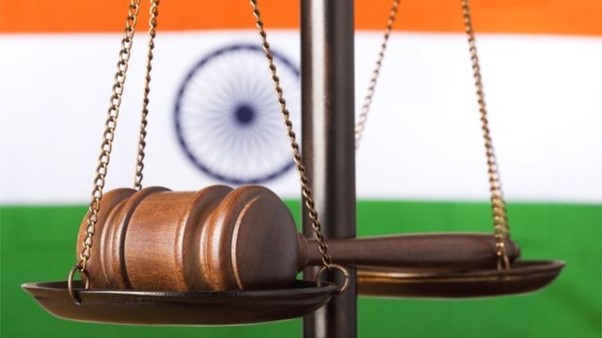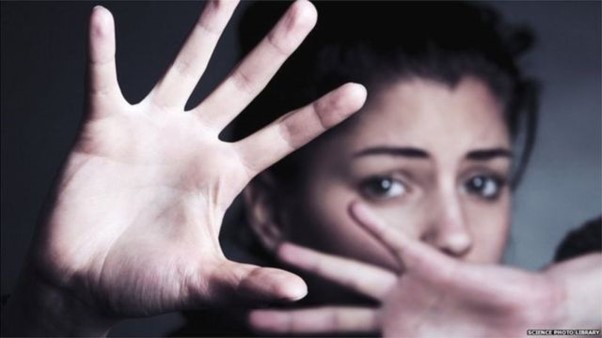How much is the husband responsible for the tortured wife in the in-laws?
Dismissing the husband’s anticipatory bail plea in a dowry harassment case, the Supreme Court on Monday said that the husband is primarily responsible for the injuries inflicted on the wife in the by-laws, even if the injuries were caused by relatives.
According to a report by the news website Times of India, in the case which was going on trial in the Supreme Court, the wife has accused her husband, mother-in-law and father-in-law of beating her severely for not fulfilling the demand for dowry.
This complaint was filed in Ludhiana, Punjab in June 2020.
The woman alleges that her husband and father-in-law beat her badly with a cricket bat and tried to suffocate her by placing a pillow over her mouth. After this he was thrown on the road and his father and brother took him.
In the medical report of the woman, there have been confirmed injuries in many places on the body. In which the matter of killing with a big and solid weapon has also been revealed.
The husband had filed an anticipatory bail saying that he was not beaten by his wife’s bat but by his father. However, the bench headed by Chief Justice SA Bobde said that it does not matter whether you or your father allegedly used the bat. If a woman is hurt at her in-laws, then her primary responsibility is that of the husband. The court dismissed the petition of the husband.

In this case, what the Supreme Court said about the primary responsibility of the husband is different from the existing law. In such a situation, the question arises that this was just a comment or observation which is limited to this matter only or it may have further implications.
Also, how much responsibility of the husband has been fixed in the current laws against the woman being tortured in the in-laws.
Husband’s responsibility in Section 304B
On this, lawyer Sonali Kadvara in the Delhi High Court says that after marriage, the responsibility of maintenance of the wife has been fixed by the husband. But, if the wife is tortured, then how responsible the husband is, it depends on what the crime is, under which law and what are the facts of the case.
Sonali Kadvara gives the example of Section 304B of the Indian Penal Code.
A case of dowry murder is registered under 304B. Under this law, if a woman dies within seven years of marriage due to unnatural reasons and there was cruelty or harassment for dowry before death, then that death will be considered as dowry murder.
Sonali Kadwasra says, “If someone’s name is not specifically mentioned in the complaint under 304B, then the name of the husband and in-laws or whoever lives in that house will automatically be included in it. In this, the husband is also considered responsible. Whether he has been harassed or not. “
“But, if the family members of the deceased wife accuse the in-laws in their complaint but not the husband, then the husband will not be considered to be involved in the crime. The hypothesis is denied when you have a particular complaint that is contrary to the concept. “
“Under this section, the responsibility of protecting a wife in a marriage has always been placed on the husband. The same hypothesis is envisaged in Section 113B of the Evidence Act. In this, the husband and his family have to prove themselves innocent. “
However, such a concept is not enumerated in Section 498A of the IPC. In order to prevent dowry harassment, a provision of section 498A of the IPC was made in 1986. If a woman is tortured mentally, physically or otherwise for dowry, then a case under this section is registered on the complaint of the woman.
What does the domestic violence law say?

Another law related to domestic violence against women is the ‘Protection of Women from Domestic Violence Act, 2005’. In this, a law was made against physical, economic, emotional and mental violence. Only women can complain under this.
Sonali Kadavara says that there is no presumption in this law like 304B that the husband is responsible for the torture and torture of the wife.
If the wife makes the accused members of the in-laws in the case of domestic violence but not the husband, then the husband will not be made a party in this case.
But, there is one more thing to keep in mind. If the wife says that the husband did not physically torture her, but she was aware of this torture. In such a case, there is a case of mental or emotional harassment on the husband.
Advocate GS Bagga explains, “In cases of domestic violence, it is first seen whether the violence that has taken place has happened in the same house or under one roof.” If the husband and wife and father-in-law do not live in the same house or under the same roof, then the case cannot be considered under domestic violence. It is only after domestic violence comes into law that someone else’s responsibility is decided. “
“However, it does not happen in 498A. Whether you live with it or not, but if the girl is harassed and the case is taken on all those who take her name. ”

The meaning of the Supreme Court’s comment
Sonali Kadvara says that the Supreme Court’s comment that is being talked about is not mentioned in the order of this case. Therefore, if such a comment has been made, it will only apply to this matter. It will not have any effect on any existing law. Many times the courts make different comments based on the facts of a case.
However, if this comment had any wide impact or was said to be in the context of the existing law, it could have both its advantages and disadvantages.
Sonali Kadavara says, “If in every case the primary responsibility for the injuries inflicted on the mother-in-law is to be considered on the husband, then the problem will be that if the wife only accuses her in-laws of harassing but not the husband, then the husband is accused Will be considered The wife will not be able to save him. Because the primary responsibility of the wife’s safety will fall on the husband. “
“At the same time, it will help that the wife will not have to prove that the husband is also involved in the harassment. Then it will be the responsibility of the husband to prove it. In many cases the husband says that he did not know about the torture. Both husband and wife have to prove their point and matters get dragged on for a long time. However, this is all very far away. “
GS Bagga also says that in every case, considering the husband as primarily responsible can make it difficult. For example, if the slap father-in-law is killed and the husband is not at home, then how can you say that the husband is primarily responsible for this. Therefore, what the court has said is said only for the same case.
Husband’s responsibility but not compliance
Anuradha Kapoor, director of the Kolkata-based organization, which works for women’s rights and against violence on them, says that a married woman will only demand rights from her husband, whether it is to maintain or to be safe at home. Husband’s responsibility has also been fixed in our law. Cases are registered against them, but the problem is to implement the law.
She explains, “The laws are good for women in India. These laws have come after a long fight for women’s rights, but their compliance is not done in a better way. For example, when the husband refuses to give the maintenance amount even after getting the maintenance order from the court, the wife has to make many rounds of the court. ”
“The domestic violence law states that the case will be heard within three days and a final order will come within 60 days. But, in reality it takes months for the first hearing only. It takes years for the final order to arrive. “
She says that women are struggling even after the responsibilities are fixed at the level of law. They are not aware of the medical test. If she does not conduct the test in time, then there is no evidence of violence. Lawsuits go on for a long time so they get tired and retreat. Therefore, the law should not only be made firm but attention should also be given to its compliance.




